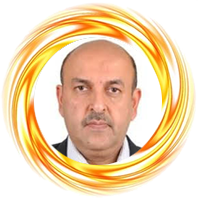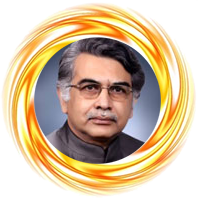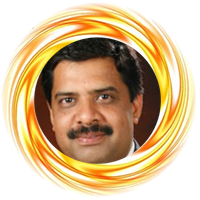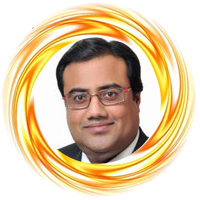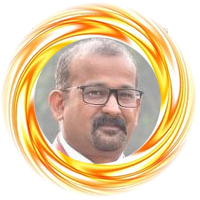“Smart-Sustainable cities in India - Considering innovative solutions and high level strategic planning”The Smart Cities Mission is an innovative and new initiative by the Government of India to drive economic growth and improve the quality of life of people by enabling local development and harnessing technology as a means to create smart outcomes for citizens. The Mission will cover 100 cities and its duration will be five years (FY2015-16 to FY2019-20). The objective is to promote cities that provide core infrastructure and give a decent quality of life to its citizens, a clean and sustainable environment and application of 'Smart' Solutions. OverviewThe Modi government's vision of creating 100 smart cities will require an investment of over USD 150 billion over the next few years with the private sector being a significant contributor, says an industry report. |
SPONSORS    
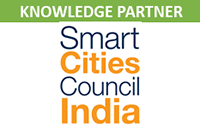
|
The winning cities will receive an investment amount of Rs. 50,802 Crore from the Ministry of Urban Development over next five years with all the cities proposing Public-Private-Partnership as a major vehicle of resource mobilization.
Eight critical pillars of India’s Smart City Program are:
1. Smart governance: Investments of about US$1.2 trillion will be required over the next 20 years across areas such as transportation, energy and public security to build smart cities in India. Highlights:
• US$1.2 billion allocated for smart cities and FDI norms relaxed
• US$83 million allocated for Digital India Initiative
• PPP Model to be used to upgrade infrastructure in 500 urban areas
• Smart City projects to create 10-15% rise in employment
• Ministry of Urban Development has plans to develop 2 smart cities in each of India’s 29 states
• Delhi Mumbai Industrial Corridor Development Corporation Ltd (DMICDC) plans seven “smart cities” along the 1,500 km industrial corridor across six states with a total investment of US$100 billion
2. Smart Energy: Three crucial dimensions of smart energy systems are: Smart Grid
• Electrification of all households with power available for at least 8 hours per day by 2017
• Establish smart grid test bed by 2014 and smart grid knowledge centre by 2015
• Implementation of 8 smart grid pilot projects in India with an investment of US$10 million
• Energy Storage
• Addition of 88,000 MW of power generation capacity in the twelfth five year plan (2012-17)
• India needs to add at least 250-400 GW of new power generation capacity by 2030
• The Power Grid Corporation of India has planned to invest US$26 billion in the next five years
• Smart Meters
• India to install 130 million smart meters by 2021
3. Smart Environment: Three crucial dimensions of ensuring sustainable development are: Renewable Energy
• Ministry of New and Renewable Energy has plans to add capacity of 30,000 MW in the 12th Five Year Plan (2012-17)
• Water and Waste Water Management
• The Indian Ministry of Water Resources plans to invest US$50 billion in the water sector in the coming years
• The Yamuna Action Plan Phase III project for Delhi is approved at an estimated cost of US$276 million
• Sanitation
• About 67% of the rural population continues to defecate in the open, and India accounts for about 50% of the world’s open defecation
• The Government of India and the World Bank have signed a US$500 million credit for the Rural Water Supply and Sanitation (RWSS) project in the Indian states of Assam, Bihar, Jharkhand and Uttar Pradesh
4. Smart Transportation: The Government of India has set ambitious targets of developing public transportation system to support the ever growing urban populace. Green Transport
• The Government of India has approved a US$4.13 billion plan to spur electric and hybrid vehicle production by setting an ambitious target of 6 million vehicles by 2020
• Electric vehicle charging stations in all urban areas and along all state and national highways by 2027 Railways
• Metro: Ministry of Urban Development plans to invest more than US$20 billion on the metro rail projects in coming years
• High Speed Rail: The proposed 534 km Mumbai-Ahmedabad high speed rail project will have an investment of around US$10.5 billion
• Monorail: India’s first monorail project at Mumbai will cost around US$500 million, of which US$183 million has been spent on phase I
5. Smart IT & Communications: Information and Communications Technology
• Cloud computing will evolve into a US$4.5 billion market in India by 2016
• Broadband connections to 175 million users by 2017
• Security and Surveillance
• Under the flagship “Safe City” project, the Union Ministry proposes US$333 million to make seven big cities (Delhi, Mumbai, Kolkata, Chennai, Ahmedabad, Bangalore and Hyderabad) to focus on technological advancement rather than manpower Disaster Management
• The Government of India and World Bank signed US$236 million agreement for reducing disaster risks in coastal villages of Tamil Nadu and Puducherry
6. Smart Buildings:
• India is expected to emerge as the world’s 3rd largest construction market by 2020, by adding 11.5 million homes every year
• The Intelligent Building Management Systems market is around US$621 million and is expected to reach US$1,891 million by 2016
• Smart Buildings will save up to 30% of water usage, 40% of energy usage and reduction of building maintenance costs by 10 to 30%
7. Smart Health Hospitals:
• Health budget up by 27% in FY 2014-15 to US$5.26 billion, with special focus on improving affordable healthcare for all
• To establish six new AIIMS like institutes and 12 government medical colleges in the country
• Accessible, affordable and effective healthcare system for 1.2+ billion citizens
• Insurance
• FDI limit in the insurance sector increased to 49% from 26%
• Insurance industry has potential to reach US$1 trillion by 2020
• Medical Devices
• Indian medical devices market to reach US$11 billion by 2023
• 100% FDI allowed in the medical devices sector under the automatic route
• Wellness
• Indian wellness industry is expected to reach around US$16.65 billion by 2015
8. Smart Education: The Government of India has allocated US$13.95 billion in the Union Budget 2014-15 for the education sector, up by 12.3% from the previous year.
• Budget has allocated US$78.5 million to set-up five new IITs and five new IIMs
• The Ministry of Human Resource Development plans to have 1,000 private universities for producing trained manpower to meet services and industry requirements
• 100% FDI allowed in the education sector
• India’s online education market size expected to be US$40 billion by 2017





